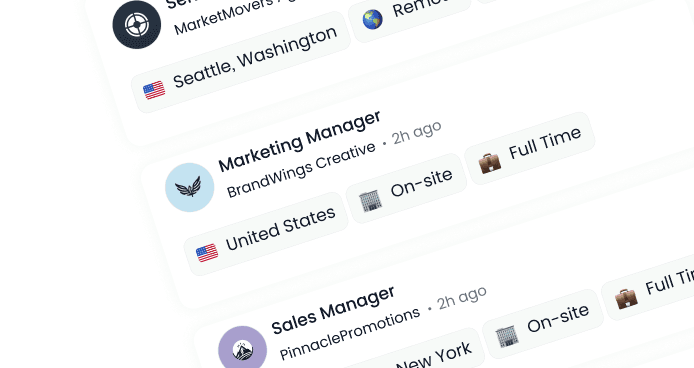Salary Negotiation Made Simple: Land the Pay You Deserve
Published:
October 2, 2025
All
Career Development
Job Seeker Tips
AI Recruitment
Talking money doesn’t have to be awkward — here’s how to negotiate with confidence and clarity.
Introduction
If you accepted the first offer given to you by a company during an interview, the chances are you just sold yourself short. However, this is a mistake most candidates make often, i.e., stay silent because money talk feels risky. This guide turns that salary talk stress into strategy, showing you exactly what to say in a salary conversation, when to say it, and how to back it up—step by step.
So, without further ado, let’s begin.
1. Know Your Worth Before You Speak
Salary range questions can feel awkward when you don’t have data to rely on. Instead:
1. Role benchmarking. Search online and trace out some authentic sources that carry some authority. They could be a government related bureau that has salary information or even private sites like PayScale or Glassdoor. These sources can help you get an estimate – a realistic salary range of your job.
2. Flexibility and factor geography. Teleworking or hybrid jobs can be national market-based or location-based. Inquire in advance about the model adopted by the employer to prevent confusion.
3. Measure your advantage. See what you have going for you, from your cumulative work experience to any certifications or special trainings that you might have taken. This also includes any projects you have taken or successfully completed.
Pro Tip: Create a file of your successes, something that shows how you directly or indirectly helped your company for the better. If you’re in sales it could be figures that show how much revenue you brought in for the company over the course of your tenure. If in IT, it could be you switching over to a new and more efficient systems infrastructure that saved your company in the long run.
2. Choose the Right Time
In negotiation, it is all about timing. Requesting salary too soon gives you a reputation of being too pay-oriented, and requesting it too late makes you miss your opportunity. This is a basic outline of when it’s best to ask:
During Initial Screening calls: Pay attention to job and responsibilities. Ask politely, how much is the salary range that is budgeted in this position?
On the last interviews: After the employer has been convinced of your worth, it is acceptable to discuss pay and benefits once again.
After receiving a written offer: This is the prime window to deploy your salary negotiation tips, since you now have leverage and clear expectations.
3. Script Your Ask in Four Sentences
Many job seekers struggle with what to say. Keep it short and professional with this template:
Appreciation: “I’m excited about the offer and the impact I can make.”
Positioning: “Based on my research and experience leading X project…”
Specific number: “I was expecting a base of $85,000.”
Collaborative close: “Is there flexibility to meet that figure?”
This script demonstrates confidence without sounding aggressive or demanding.
4. Anchor High, But Stay Real
Employees who negotiate secure an average 18.8 percent pay bump. However, avoid asking for unrealistic numbers. That is where all the research you did previously can come in handy. It is best to start at the higher end of the salary spectrum. If the hiring manager counters, tell them about your successes and if that doesn’t work, negotiate for better perks and benefits.
5. Be a Professional and Discuss
Sometimes people forget that a negotiation is a collaborative discussion. That is why you should try not to have confrontational tone. It is best to be professional and offer calm and effective rebuttals to any counters you get.
Some examples:
“We’re at budget.” → “I understand. Could we explore a signing bonus or an earlier performance review?”
“Your ask exceeds internal equity.” → “I respect pay bands. How close can we get, and which milestones would justify an adjustment?”
“This is our best offer.” → “Thank you for clarifying. I’d like to consider the full package overnight and circle back tomorrow.”
Such responses keep the conversation professional and solution-focused.
6. Special Situations
First Job at the Entry Level
You might have the experience, but that doesn’t mean you can’t leverage anything. Focus on your successes during studies or training. You can mention internships, academic projects and academic records as well. If you have done volunteer work that also goes a long way. You might face a wall when saying that initial pay is not negotiable, focus on discussing trainings and assessments that you can take after a while that help in getting a pay raise.
Career Changers
Changing industry may complicate negotiation. However, that does not mean you cannot negotiate. You can use your past successes and reference them to show they can positively affect your new job. If you have been a people manager or in a leadership role in one industry you can discuss how you motivated a team to meet a specific goal.
Remote & Hybrid Work
In remote working, employers can vary compensation according to geography. Inquire early on their compensation scheme, home-office allowances, and travel stipends. This knowledge beforehand will save you surprises.
7. Mindset Matters
Negotiating is not about greediness but it is about a fair match between what you are worth to the employer and what the employer can afford. It is the expectation of hiring managers that the candidates will talk about pay, and engaging in the discussion demonstrates that you are confident, knowledgeable, and professional. The trick is to prepare and practice.
8. Frequently Made Errors
To make things easy for you we have compiled a list of mistakes that candidates tend to make during the selection process:
Taking the initial offer: Employers tend to provide a leeway in negotiation.
Speaking in general terms: You should be precise with the numbers instead of saying that I want more.
Failing to do research: This is guesswork and you end up selling yourself short or too high.
Paying attention to salary only: Occasionally, perks, stock options, or benefits may be more important than a slight pay difference.
Not practicing: You can role play your pitch with a friend to perfect your voice and delivery.
9. Things to Keep in Mind Before Signing
Investigated three reliable salaries data points
Read your four-sentence ask out loud
Found at least two non-salary bargains (e.g. remote flexibility, sign-on bonus)
Confirmed the employer philosophy of pay (market based vs location based)
Set a follow-up deadline to make your decision
As soon as you tick all these boxes, you will feel ready and self-confident in any conversation.
10. Knowledge to Action
Salary talk is a skill that can be learned and practiced without the stress and it is a matter of preparation, timing and controlled confidence to negotiate like a pro. By treating the salary discussions as any other business discussion, you decrease stress and improve your success. These are some ways to negotiate on your value-and you might want to apply to employers that post their salary ranges upfront, like the ones on DigitalHire, where openness and equity are a priority.
Final Thoughts: Own the Conversation
At the end of the day, salary negotiation isn’t about confrontation — it’s about collaboration. The employer has chosen you for a reason, and you bring real value to the table. By preparing your research, practicing your pitch, and staying professional, you can transform salary talk from something stressful into a moment of empowerment.
Remember: Negotiation is a skill that improves with practice. The more prepared you are, the more confident you’ll feel — and the better your chances of landing not just the role, but the compensation you truly deserve.
On platforms like DigitalHire, where salary ranges are transparent upfront, you can focus less on guesswork and more on proving your value. So take a deep breath, trust your worth, and own the conversation — your career (and your paycheck) will thank you.
Find Your Dream Job
Put your best foot forward in your job search. Stand out from the crowd, and get hired fast!




